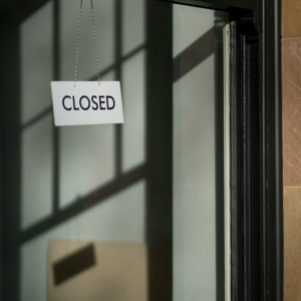The moratorium on filing for bankruptcy, which has been in effect in Spain since March 14, 2020, as a result of Covid-19, has been extended multiple times to provide a framework of legal certainty that grants economic stability, supports businesses in the recovery phase, and ensures the process of economic reactivation in Spain. Over the last two years, bankrupt companies have been granted a break to improve their financial status by delaying the obligation of company administrators to declare the company they manage insolvent.
The bankruptcy moratorium expires on June 30, 2022, and it does not seem that it will be renewed. In fact, as of the end of June, the social administrators of insolvent businesses will once again be responsible for determining when a bankruptcy petition is necessary.
Therefore, as anticipated by experts in the field, an avalanche of bankruptcy proceedings is expected in Spain by companies that have not been able to overcome their financial difficulties.
In this sense, once the insolvent company initiates the insolvency proceedings, the creditor faces a crucial moment, the communication of his credit to the insolvency receiver.
Thus, since the opening of the insolvency proceedings is officially published in the Official State Gazette by court order, the creditor has a period of one month to notify the creditors against the insolvent debtor. Therefore, if the creditor is waiting for the bankruptcy declaration of his debtor or anticipates that this may happen, he must remain very attentive to the bankruptcy declaration by court order to communicate his credits to the insolvency receiver in time.
The claims against the insolvent company may be classified upon the communications sent by the creditors to the insolvency receiver. Thanks to the communication of the creditors, the insolvency receiver will determine the debtor’s total liabilities as accurately as possible.
Therefore, the communication of claims consists of each creditor of the bankrupted (the insolvent debtor) sending the relevant information of the credits it has against the said debtor to the insolvency receiver. Based on this information, the insolvency receiver will decide whether to include them in the list of claims that the debtor has or not.
If the claim is not communicated, or in the event of late communication, the claim will lose its natural qualification to become a subordinated claim, that is, of a lower category. Subordinated claims will not be able to be satisfied until all the privileged and ordinary ones have been paid. In other words, the classification of a claim as subordinated, in the vast majority of cases (if not all), implies not collecting it.
In conclusion, the end of the bankruptcy moratorium on June 30 2022, will likely result in an avalanche of companies that have not managed to get back on their feet after the outbreak of the Covid-19 health crisis, entering into bankruptcy in Spain. For this reason, creditors must be aware of pertinent communications to the Bankruptcy Administration of their insolvent debtor. It will ensure that their collections are not impeded and may be collected.
Mercedes Guitián & José María Mesa
For additional information regarding the consequences for creditors of the end of the insolvency moratorium in Spain,





